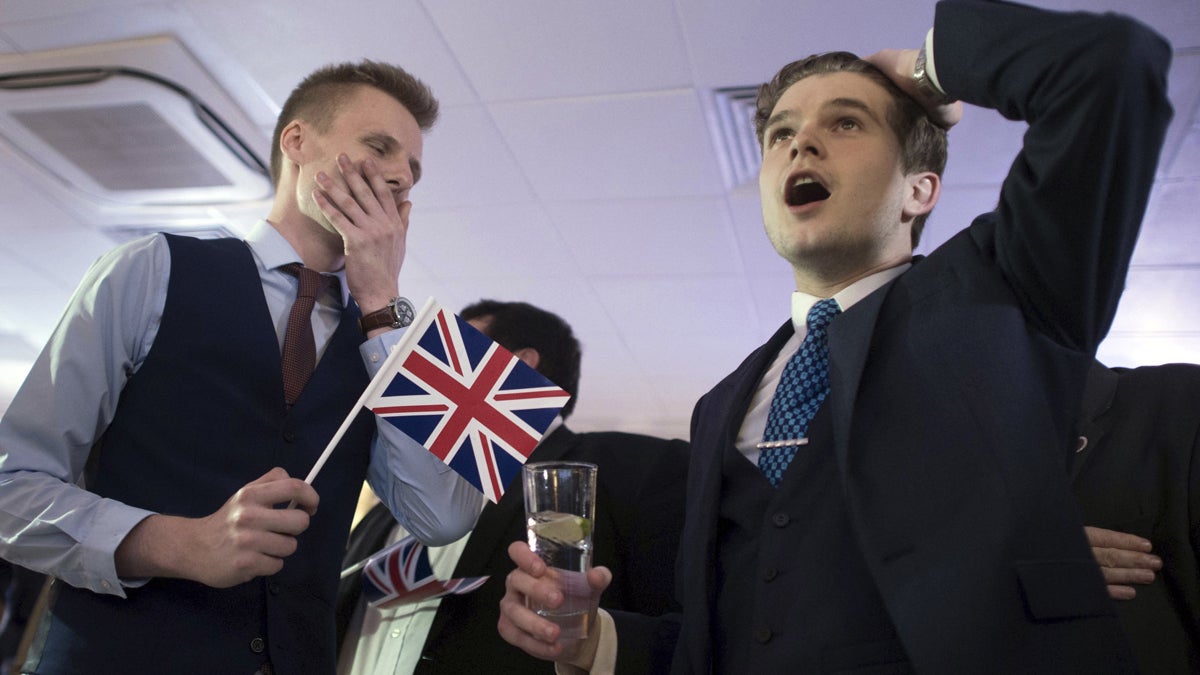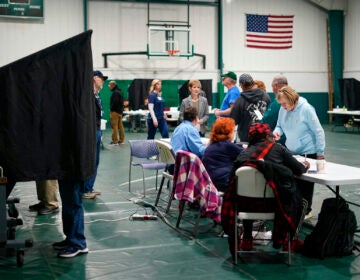After Britain’s E.U. exit, maybe there’s light at the end of the Chunnel

Supporters of leaving the E.U. celebrate at a party hosted by the Leave campaign in central London. (Stefan Rousseau/PA Wire)
Well, they’ve done it: Defying torrential rain and the predictions of the pundits — including bookmakers caught flat-footed offering odds of 5-1 against Britain’s exit from the European Union hours before the vote — some 4 million Brits voted 52 percent to 48 percent to cut loose from the EU and the protective umbrella of its 28 member nations.
Philadelphia’s honorary U.K. consul, Oliver Franklin, who had been in Britain for the referendum, e-mailed on his way to Heathrow airport: “Europe is in uncharted territory this morning. Politicians on all sides are trying to reassure the people; the pound sterling has taken a dive, and the markets are shaking. But, as all have said, the people have spoken.”
The central theme, Franklin said, is one of sovereignty, the ability of Britain to control its own affairs. How would Americans like it, he was constantly told, if your central bank was in Mexico City, your Supreme Court in Bogotá, and the Congress and Senate in Brasilia?
As in the U.S., some of the Leave vote hinges on fears about immigration. Net migration to the UK is 333,000, the second-highest number on record. And most of it from the E.U. itself.
But the immediate repercussions are turbulence and uncertainty across the globe. The British pound would be the first casualty; stock markets will take a hit; Prime Minister David Cameron’s resignation will take place in October; and, given the slim margin of the Leave vote, considerable divisiveness and infighting within the U.K. itself.
Chris Patten, chancellor of Oxford University wrote in the Financial Times, “The ruefully sanctimonious vote Leave campaigners Michael Gove and [putative replacement of David Cameron] Boris Johnson may want to reflect on some of the company they keep … the veil between our mature democracy and crude populism has been rent. I hope we can stitch the pieces together again.”
In a piece titled “From Great Britain to Little England,” the New York Times noted that the United Kingdom of Great Britain and Northern Ireland could be tearing up its European treaties and backing into isolation. It’s about sovereignty: the idea that the Westminster Parliament, not unelected bureaucrats in Brussels, should make British law. But the paper attributed deeper motives to the Brexit stance: the ghost of imperial exception, the feeling that Great Britain can never be just another nation to be outvoted by France or Slovakia.
Perhaps the main fallout from the leave decision is the so-called special relationship between the U.K. and the U.S. As President Obama put it in April, a Leave decision would force England to the back of the queue where trade deals were concerned. In short, the U.S. would rather deal with 28 countries than with one.
Finally, The Economist struck a gloomy note, saying that if Britain leaves the EU it is likely to end up poorer, less open and less innovative.
But maybe it’s a question of “out of darkness cometh light” and traditional British optimism:
There’s still a tunnel linking England to Europe — and maybe, just maybe, there’s light at the end of it.
WHYY is your source for fact-based, in-depth journalism and information. As a nonprofit organization, we rely on financial support from readers like you. Please give today.





